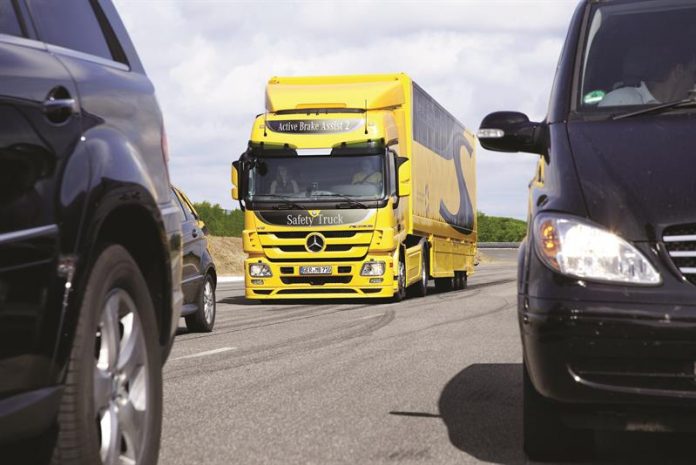Forty countries including Japan have agreed on a draft U.N. regulation for advanced emergency braking systems (AEBS) for new cars and light commercial vehicles from early 2020, which the European Union says it will implement from 2022, an U.N. agency said.
The new regulation, compulsory for countries that adopt it at a June session, will impose strict and harmonised requirements for automatic braking at speeds of up to 60 kms per hour to save lives, especially in urban settings, the U.N. Economic Commission for Europe (UNECE) said.
Japan and the EU have said the new AEBS system will become mandatory, representing some 4 million and 15 million new cars respectively each year, the statement said.
“It activates the brake to stop a crash and that’s it … It will not drive, it will brake,” UNECE spokesman Jean Rodriguez told a briefing. There will be no obligation to retrofit older vehicles, he said.
Japan and the EU have said the new AEBS system will become mandatory, representing some 4 million and 15 million new cars respectively each year, the UNECE statement said.
More than 9,500 fatalities were recorded in car crashes in cities in the EU in 2016, 40 percent of them pedestrians, it said.
The United States, China and India – which have huge domestic carmakers – are not part of the original 1958 agreement on which the latest regulation builds, Rodriguez said.
